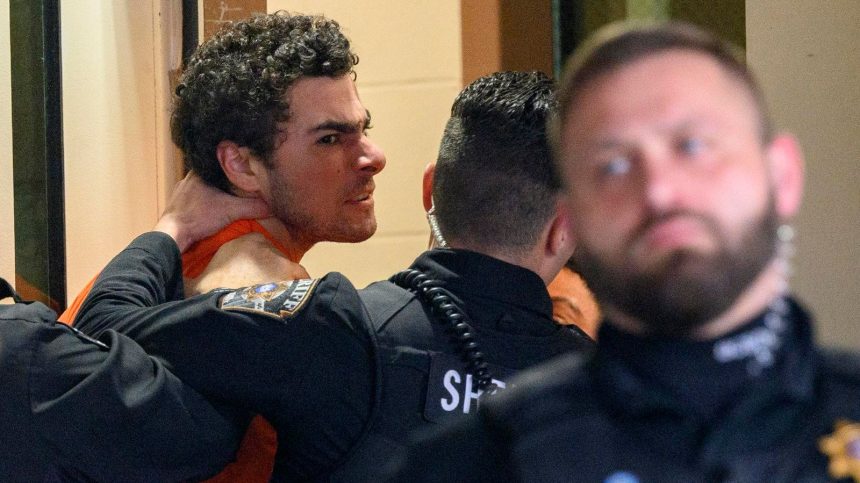The arrest of 26-year-old Luigi Mangione in connection with the fatal shooting of UnitedHealthcare CEO Brian Thompson has sent shockwaves through the corporate world and beyond. Mangione, facing charges of second-degree murder, weapons possession, and forgery, is expected to plead not guilty and fight his extradition from Pennsylvania to New York, where the crime occurred. The emerging narrative paints a picture of a young man seemingly driven by a profound disillusionment with corporate America, culminating in a premeditated act of violence. Fingerprints collected at the crime scene have been positively matched to Mangione, further solidifying his alleged involvement. The discovery of a handwritten manifesto and a detailed notebook outlining the planned attack adds another layer of complexity to the case, raising questions about Mangione’s motivations and mental state.
The documents recovered from Mangione reveal a disturbing glimpse into his mindset. He reportedly viewed the assassination of Thompson as a symbolic strike against corporate corruption and power, casting himself as a lone warrior fighting against a system he perceived as unjust. The manifesto, described as a blend of anti-corporate sentiment and self-aggrandizement, expresses Mangione’s belief that he was the first to confront this perceived corruption with “brutal honesty.” Law enforcement officials have expressed concern that Mangione’s actions could inspire others to follow suit, potentially leading to further acts of violence against corporate figures. The notebook, containing a to-do list and a rationale for the attack, underscores the premeditated nature of the crime.
The details of Mangione’s life prior to the shooting stand in stark contrast to the image of a violent extremist. A graduate of prestigious institutions, including the University of Pennsylvania and the Gilman School, Mangione displayed academic promise and leadership qualities. He held internships at respected organizations, worked as a software engineer, and even served as a counselor in a pre-collegiate program. His social media presence portrayed a young man engaged in intellectual pursuits, with interests ranging from gaming to robotics. This seemingly ordinary background makes his alleged descent into violent extremism all the more perplexing.
The investigation has uncovered a complex web of personal struggles and ideological influences that may have contributed to Mangione’s alleged radicalization. Reports indicate he suffered from a debilitating back injury that caused him significant pain and may have impacted his mental health. He expressed an interest in the writings of the Unabomber, Ted Kaczynski, although he reportedly distanced himself from Kaczynski’s violent methods. Mangione’s online activity reveals a fascination with topics related to societal collapse and anti-establishment ideologies. While the exact nature of his motivations remains unclear, these factors suggest a possible trajectory from personal frustration to a broader disillusionment with the existing societal order.
The legal proceedings in Mangione’s case are expected to be protracted and complex. He is currently being held without bail in Pennsylvania and is contesting his extradition to New York. His lawyer has indicated that he will challenge the evidence presented by the prosecution and has not yet commented on a potential defense strategy. The case is likely to raise questions about the role of mental health, social media, and political extremism in acts of violence.
The shooting of Brian Thompson has sparked a national conversation about corporate security, the potential for copycat attacks, and the broader societal implications of anti-corporate sentiment. The case serves as a stark reminder of the potential for individual grievances to escalate into violence, particularly in an era of heightened political polarization and social media echo chambers. As the investigation unfolds and the legal proceedings commence, the focus will undoubtedly remain on understanding the complex factors that led to this tragic event and preventing similar occurrences in the future.



